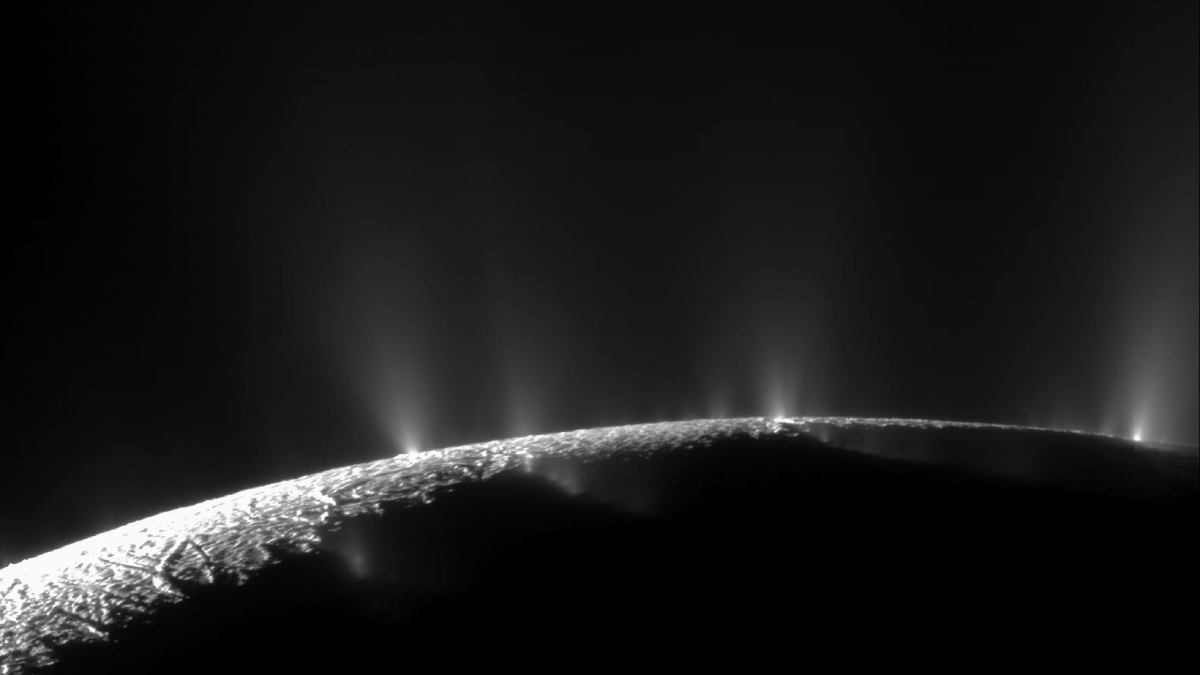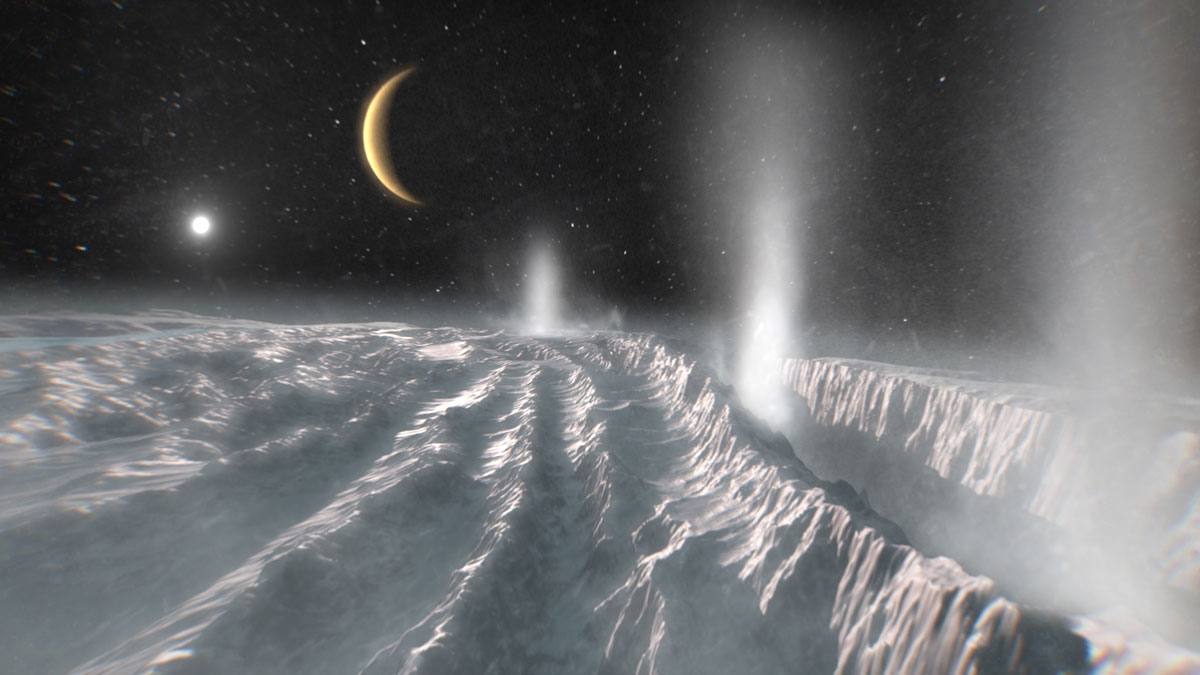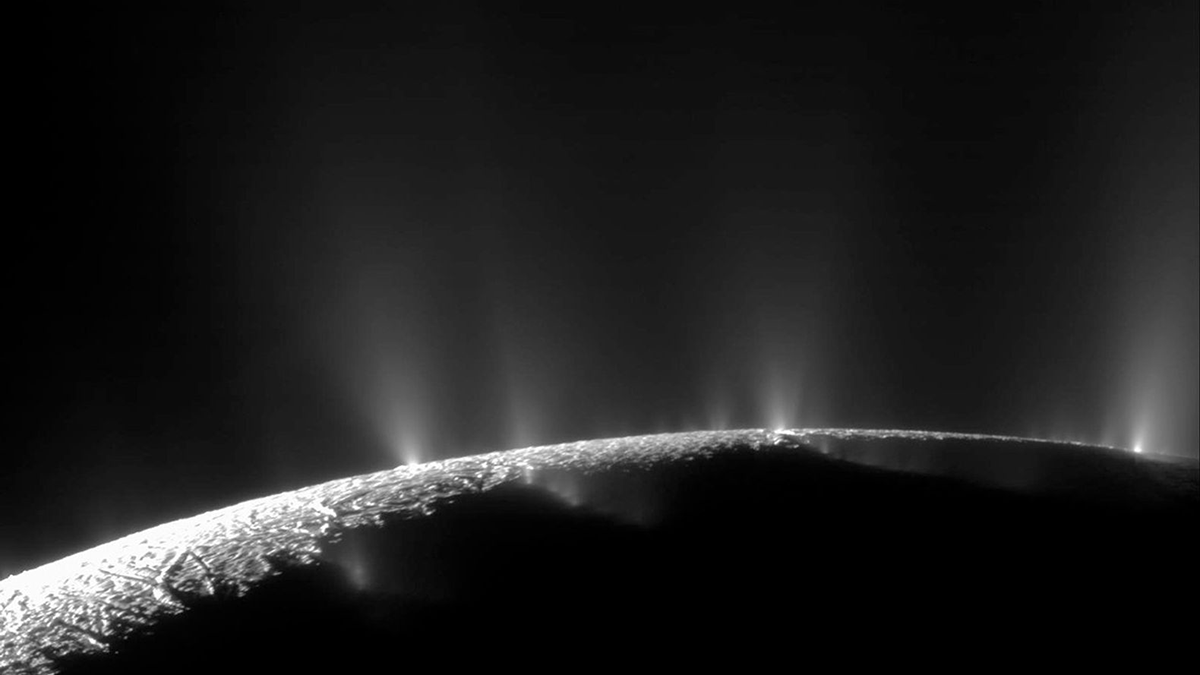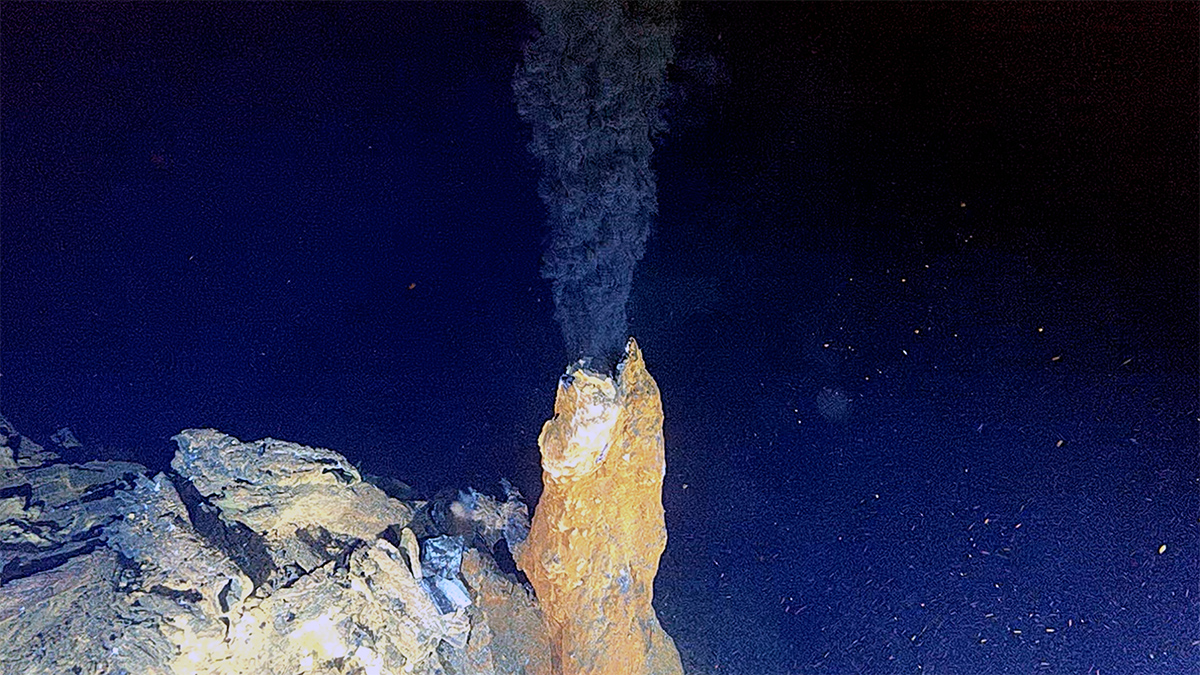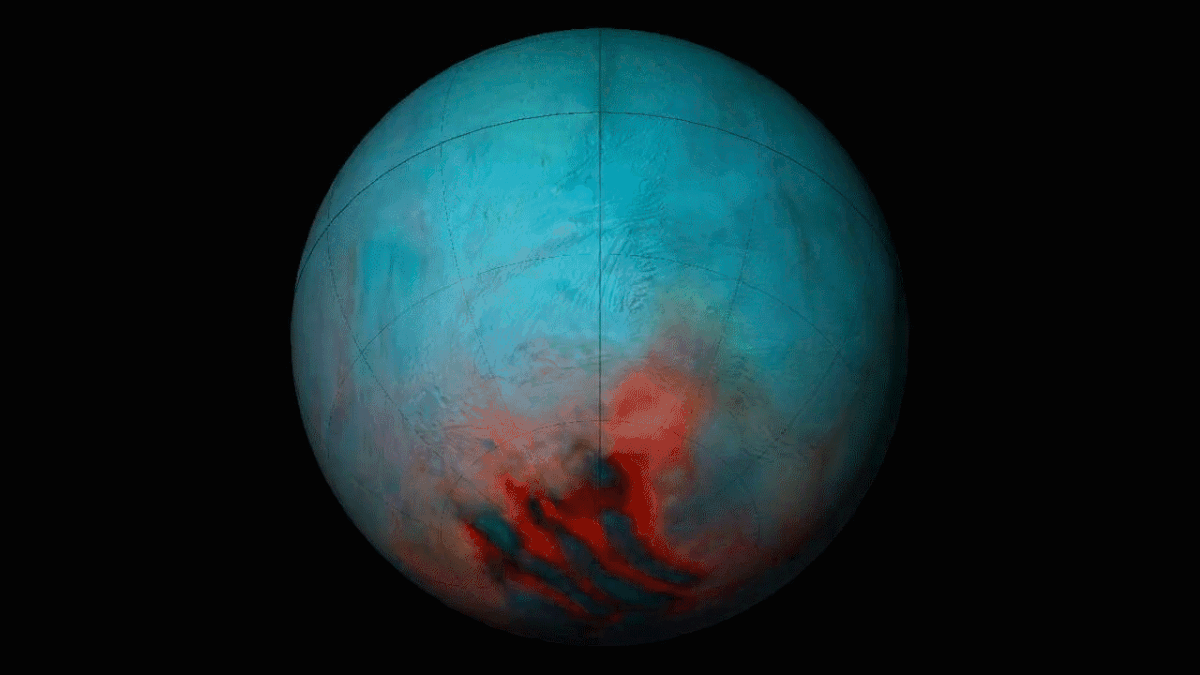A new analysis of old Cassini data has also verified past detections of complex organics in Saturn’s E ring, strengthening the chemical ties between the ring and its progenitor.
Enceladus
Space Radiation Can Produce Some Organic Molecules Detected on Icy Moons
As missions prepare to visit ocean worlds like Enceladus and Europa, new findings show scientists must first learn to distinguish between radiation-made organics and those born in a subsurface sea.
Using Algorithms to Help Find Life on Icy Ocean Worlds
Scientists could use machine learning to analyze atmospheric samples in order to help identify microbes on frozen moons. They’re testing the concept using bottles of brine and smelly bacteria.
Arctic Hydrothermal Vents May Resemble Those on Enceladus
By studying hydrogen-rich vent sites on Earth, scientists could learn more about the hidden ocean of Saturn’s icy moon—one of our solar system’s likeliest candidates for harboring life beyond Earth.
在土卫二上寻找生命:我们应该问些什么问题?
在冰冷的海洋世界中,建立在有机化学进化理论基础上的研究框架,可能会比仅仅寻找生命存在的直接证据,带来更深刻的见解。
Looking for Life on Enceladus: What Questions Should We Ask?
On icy ocean worlds, a research framework built around the theory of organic chemical evolution could surface deeper insights than a hunt limited to direct evidence of life.
Strike-Slip Faults Could Drive Enceladus’s Jets
The back-and-forth motion could also reshape surface geology at the moon’s south pole.
La canción de hielo y fuego del criovulcanismo
Las lunas oceánicas del sistema solar exterior nos dan pistas sobre volcanes de hielo, fuentes hidrotermales, y la tentadora posibilidad de habitabilidad.
Cryovolcanism’s Song of Ice and Fire
Ocean moons of the outer solar system hint at ice volcanoes, hydrothermal vents, and the tantalizing chance of habitability.
Essential Ingredient for Life Found on Enceladus
Icy plumes from Saturn’s moon Enceladus contain phosphorus, part of the biochemistry of life—the first time the element has been found in a liquid environment beyond Earth.

